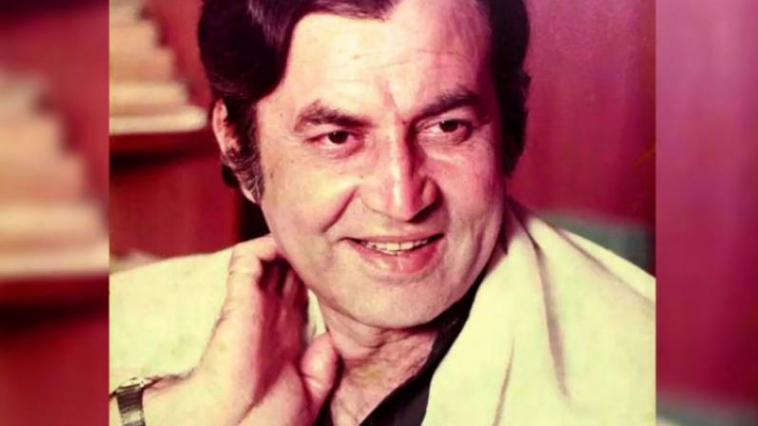Mohammad Ali was perhaps the greatest lead actor Pakistani Cinema ever had. His range and screen presence remains unequaled to this day. His towering physique, thunderous voice, and versatility was evident from the very start. However, he didn’t become “Shahenshah-e-Jazbaat” overnight.
In fact, he struggled for years before his talent was recognized on the big screen. Today, on his birth anniversary, we recognize the films that made him the great star he was.
Khamosh Raho (1964)
Mohammad Ali’s first 10 films were all either flops or lukewarm successes at the box office. He played both the villain and the hero in several, but never connected with the audience. However, in Khamosh Raho, he found his big break.
The film was a massive hit at the box office and won Best Film at the Nigar Awards. Centered on a brothel in the northern areas of Pakistan, Mohammad Ali played a young man who would marry girls from different villages and then force them into slavery.
However, he barely speaks in the film. Hence, the title. Not until the very end, when he turns from his villainous inclinations to the sonorous voice of Ahmed Rushdi reciting the film version of Habib Jalib’s Dastoor, does he speak out.
Ironically, this mostly silent performance was what gave Mohammad Ali his first acting award for Best Supporting Actor.
Kaneez (1965)
Kaneez was a multi-starrer with Mohammad Ali, Zeba, and Waheed Murad, with Mohammad Ali again playing a villain of sorts. Again, his performance is quite understated and silent throughout most of the film. There is a particularly hypnotic scene when he wanders around his living room, pondering his next move. The motions he goes through are enough to see why he won the Nigar Award for Best Actor that year.
While Kaneez basically presents a love triangle with social commentary, and a rousing soundtrack, it worked wonders at the box office. It became a golden jubilee and made all 3 actors household names.
Aag Ka Darya (1966)
Having nothing to do with the eponymous novel by Quratulain Haider, this one is about a rebel or dacoit, depending on how you choose to look at it.
With a screenplay by Riaz Shahid, it features a performance by Mohammad that solidified his turn towards the melodramatic. From the beginning, he rings loud and true as Shahenshah e Jazbaat.
Meeting him with tremendous skill is Shamim Ara in the role of a courtesan. While the pair would act opposite each other again in Saiqa, this is perhaps their best film together.
Mohammad Ali again scooped the Best Actor trophy at the Nigar Awards for this film. This was remarkable for the year, since all the major awards were swept by Armaan starring Waheed Murad and Zeba.
Aag (1967)
Aag was not as groundbreaking a film as the others on here, but it was a huge milestone in Mohammad Ali’s life. It was the film that made him and Zeba a golden pair. Mohammad Ali and Zeba were married shortly before the film’s release, and Aag was partially a celebration of the union.
It also starred Lehri, Talish and M. Ismail. This team would go on to star in many films together, several of which were huge box office successes.
Aag was a major box office hit due to the pair, the great soundtrack by Nisar Bazmi, and the cinematography (the film was shot in beautiful locations in the North of Pakistan).
The film became a golden jubilee at the box office.
Insaf Aur Qanoon (1971)
“Judge Sahab!” This iconic line from Mohammad Ali was birthed during the climactic sequence of Insaf Aur Qanoon. While the film didn’t take home any acting awards, Mohammad Ali’s incredible performance became one of the cornerstones of Pakistani film history.
The film is about a case of justice not served, and justice delayed. This was perhaps the first time when audiences were moved to tears by Mohammad Ali’s performance. His turn as the wounded prisoner at the end struck a chord with the audience.
While we can’t ascertain exactly when people began to call him “Ali Bhai”, they were definitely calling him by that title after Insaf Aur Qanoon.



Comments
0 comments